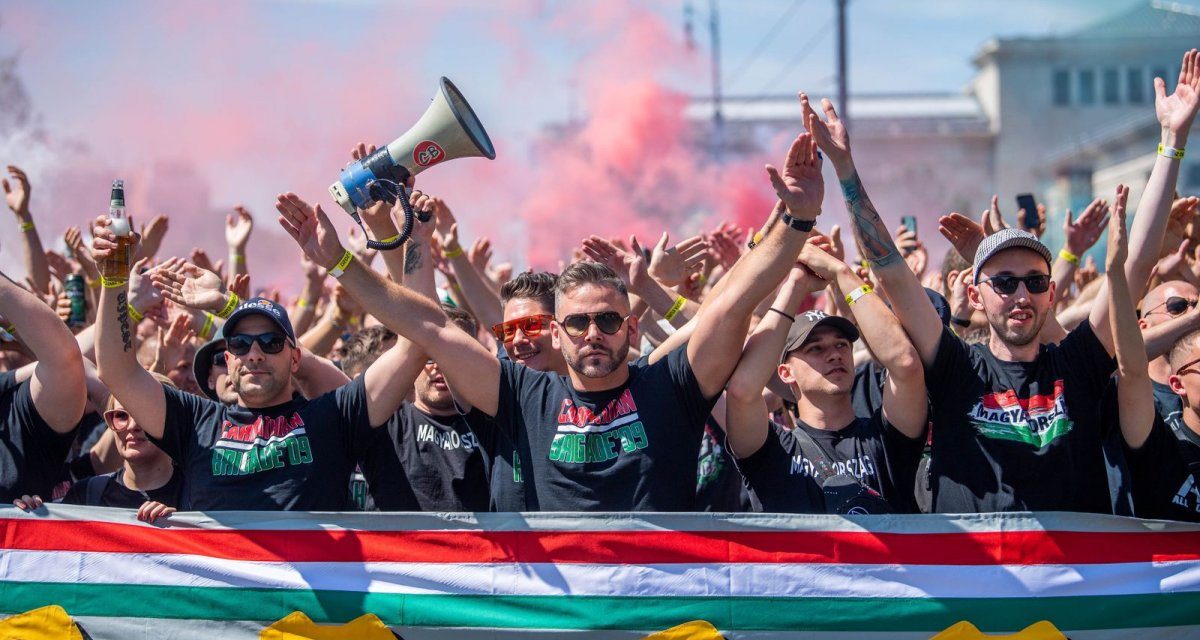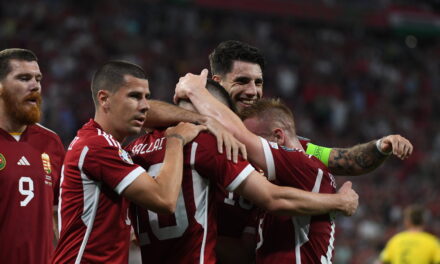This time, however, the composition of the group, the results of the undefeated qualifying series, and
team captain Dominik Szoboszlai's rise to class can also be a cause for much greater confidence.
However, the composition of the quartet is still not easy, as the Germans can play on home soil, and their squad is full of world stars, but just looking at the world ranking, Switzerland is also ahead, and Scotland proved by defeating Spain during the qualification that it can be dangerous for any rival. The Hungarians will start their continental competition against the Swiss in Cologne on Saturday, then they will meet the hosts Germany in Stuttgart on June 19, and the Scots four days later in the group stage.
It is no coincidence that the Italian manager, who already has Hungarian citizenship, is trying to hold back a little on the hopes and the formulation of expectations and goals, because with this he wants to take the burden of chances off the team. However, under his leadership, the national team has twice built an unbeaten streak of more than ten games, reached the world tournament for the first time since 1986, and also defeated opponents belonging to the world elite in stakes matches, such as England, which is still considered a favorite, and group rival Germany - the former twice, also away from home for example 4-0. In light of this - and in contrast to the promotion in 2016 - it would not be unexpected at all if the Hungarians experienced the straight elimination stage.
The last Euro of Ronaldo, Pepe, Kroos and Modric
There will certainly be no shortage of records at this tournament, as Cristiano Ronaldo is now preparing for his sixth continental tournament with the Portuguese, the five-time Ballon d'Or winner can improve his own record with each game and goal. Another veteran Portuguese, Pepe, can consign a Hungarian peak to the past, as he will become the oldest European player of all time, dethroning Gábor Király. Apart from them, they will also be, or can be, a great farewell to football between nations.
The German Toni Kroos, who celebrated his sixth Champions League trophy two weeks ago, for example, gave new impetus to the Nationalelf, which has been in ups and downs for years, with his return, but he will hang up his cleats after the tournament. For the home team, the European Championship could be the last big tournament for even Thomas Müller. The big generation of Croatians, including the also six-time WC winner Luka Modric, could have the last big shot after the silver and bronze medals they won at the previous two world championships.
The biggest question of the tournament is, of course, who will be able to lift the Henri Delaunay Cup on July 14 in Berlin's Olympic Stadium, which has been won by ten teams so far, most - three times - by Germany and Spain. The two biggest favorites of the European Championship are England, the most recent silver medalist, and France, who are second in the World Cup. Both guards are full of young world class players - Jude Bellingham and Kylian Mbappé are enough to mention - who form a perfect mix with experienced, proven stars like Harry Kane and Olivier Giroud.
In addition to them, the hosts Germany should not be written off either, because although they achieved particularly poor results until 2023, in March of this year, by defeating the favorites France and then the Netherlands, they showed that they are to be reckoned with.
As long as Cristiano Ronaldo is in their ranks, the Portuguese team is also among the contenders.
while the Spaniards want to cause a surprise in the final game with a team rejuvenated after the World Cup failure. A repeat of the defending champions and the Italians, who also won the last big tournament in Germany, the 2006 World Cup, would be unexpected, considering that the dominant midfield line, which was the main depository of the triumph three years ago, is currently bleeding from several wounds due to injuries, and the leaders of the defense have since retired.
It is interesting that there is no longer a trace of the coronavirus epidemic, but many of the innovations introduced at the time have survived its impact on football. For example, the
The squad has been increased from 23 to 26, or the five exchange options, which will be expanded by a sixth in the event of an extension.
Out of the six quartets, in addition to the first two places, the four best third placers make it to the top 16, and from there the tournament takes place in a straight elimination system until the final on July 14 in Berlin.
MTI
Photo: MTI / Zoltán Balogh













